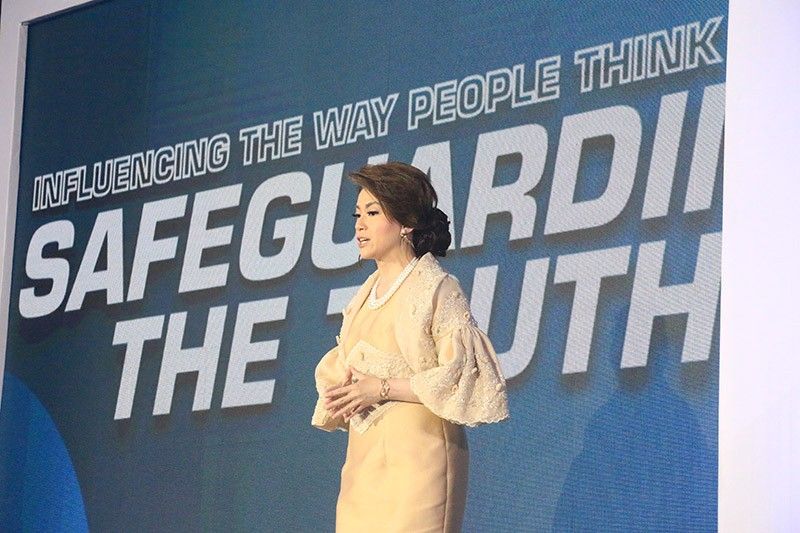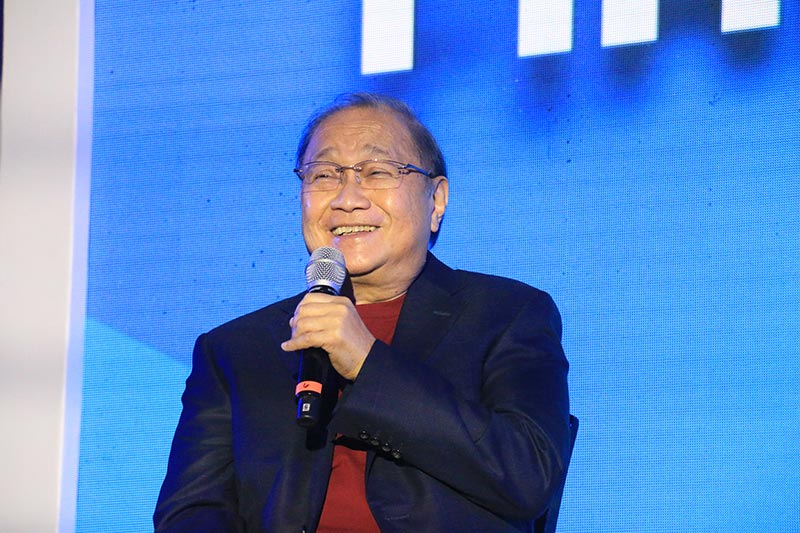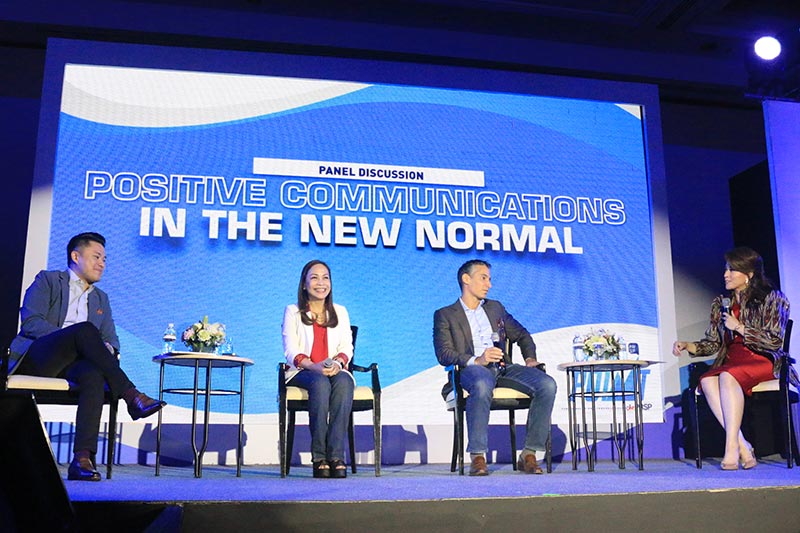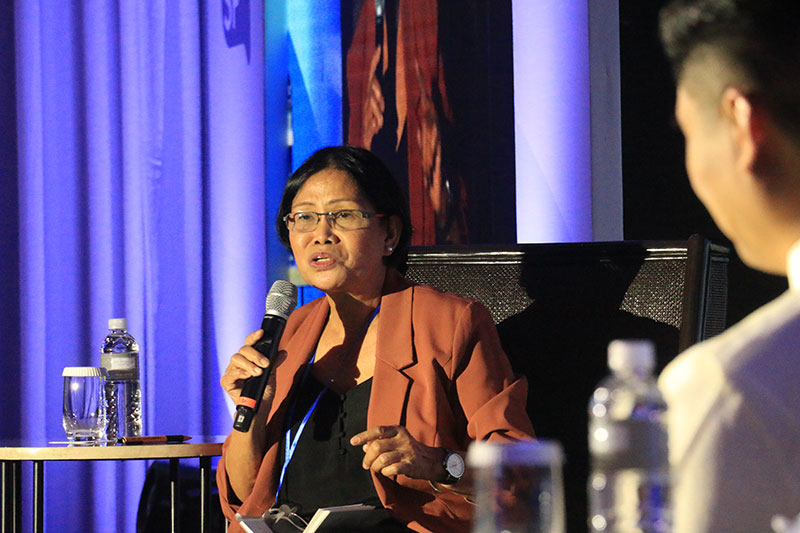PR practitioners, private stakeholders push for truthful communication in Philippines

MANILA, Philippines — Public relations (PR) practitioners, along with private stakeholders in the country, are pushing for truthful communication in this age of disinformation.
During the recently concluded 2022 National PR Congress on September 1 and 2, keynote speakers from the PR industry, the academe and the private sector discussed the importance of truth-telling, and how it can propel the country to progress.
“Today and together, we are at a tipping point of redefining and reshaping our collective futures from the lens of responsible public relations practitioners. We are here to propagate the truth, innovation and progress at a time of significant change as we work with our new government and the private sector to steer our economy to a high growth path against the backdrop of rising food and commodity prices,” Cathy Yang, chairperson of the 29th edition of the National PR Congress, said in her welcome remarks.
On Day 2 of the congress, which was the first-ever hybrid version on ground and online, Yang sat with special guest Manuel Pangilinan, chairman and president or Metro Pacific Investments Corp. (MPIC), in a fireside chat.

There, Pangilinan acknowledged the challenges the country and the economy are facing today. Amid these times of inflation and pandemic, he reminded PR practitioners to disclose truth as much as they can to Filipinos.
“Probably the main message this afternoon to the PR practitioners (is) that especially (in) moments of crises—even in moments of non-crises—it is best to disclose more than what you are prone to disclose,” he shared, adding that Filipinos will always appreciate the truth.
He also committed that his conglomerate of companies will invest heavily in agriculture, IT and logistics to help address food security in the country.
Truthful communication was also the practice of other business groups in the country, including Alliance Global Group Inc., the parent company of Megaworld, Emperador, McDonalds Philippines and more.
CEO Kevin Tan shared how communication served an important role for their employees and communities in the new normal, especially with regards to their vaccination efforts.
Noting how disinformation contributed to vaccine hesitancy, Tan said, “We really had to try to correct or promote the right information about COVID, about vaccination, about many things, even rules from the government were distorted at times.”
“And the problem was that, it wasn’t just social media. Even the chat groups were filled with disinformation and that was even harder to control. We always had to get to the source of these things,” he further noted.
To this, Christian Gonzalez, executive vice president and chief risk officer, International Container Terminal Services Inc., added, “The definition of the truth has become murky. I think we have a responsibility if there is something of value to the community, to the country, to partners. We should take the opportunity to come out and tell it as it really is.”

Tan and Gonzalez, together with June Chaye Cabal-Revilla, chief financial officer and chief sustainability officer at MPIC, served as guest speakers during the “Positive Communications in the New Normal” panel on Day 2.
Based on data from a panel discussion on Day 1 dubbed “Training Tomorrow’s Truth Champions,” disinformation has proliferated greatly from 2016 to 2022, which both held national elections.
“The pandora’s box of social media phase in disinformation was opened. From 135 false and misleading claims in 2019, it has risen to 256 in 2022," Gerardo Eusebio, professorial lecturer from De La Salle University, said.
“Perhaps most disturbing is the apparent multiplication of interactions which rose from 4.36 million to 67.48 million interactions. If we assume that these interactions are divided equally to likes, reactions, shares, retweets and comments, and are done by the same people, we can argue that the number of people exposed to fake news has risen from as much as 1.45 million to about 22.49 million,” he continued, citing fact checks and studies made by Rappler.
He added that Facebook, which can be accessed through free data from telcos, remained as the top social media platform for misinformation, reinforced recently by YouTube and TikTok.
In this light, veteran journalists Ellen Tordesillas, president of VERA Files, Melinda Quintos de Jesus, executive director of the Center for Media Freedom & Responsibility, and Mildred Galarpe, digital media director of SunStar Cebu, shared sentiments on involving the youth in truth-telling especially if they are pursuing careers in PR or media.

“How then do we ensure that the new generation who will take on these responsibilities from us will do what needs to be done for their own generation and for their own time?” de Jesus pondered.
“We train people to be fact-checkers because we believe that everybody can be a fact-checker and should be a fact-checker. We do that mostly in the universities because that’s where we feel the youth are, the young people. And they are the best ones to do the job,” Tordesillas said.
“Fact-checking is actually truth-seeking. That’s what we would like to imbue and nurture among the young people, the truthfulness that they should value,” she added.
The two-day 29th National PR Congress was held jointly with the 28th Students’ PR Congress at The Peninsula Manila in Makati City. Both congresses are the biggest gathering of PR practitioners and students in the country, organized yearly by the Public Relations Society of the Philippines.



















